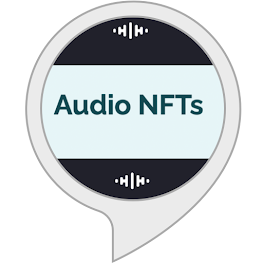Optimizing Keywords In Microcast Descriptions: SEO Tips For Podcasters
Podcasting is booming, and for good reason. It's a fantastic way to share your expertise, connect with your audience. And now, you can even boost your website's visibility through Audio SEO. Let’s have a look on how you can supercharge your podcast's SEO by optimizing keywords in your microcast descriptions:
Why Keywords Matter
Keywords are the words or phrases people type into search engines to
find information. For podcasts, keywords are essential because they help
potential listeners discover your content. For example, if you run a
cooking podcast, keywords like "quick recipes," "healthy cooking," or
"easy meal prep" are crucial for audio brand engagement.
Choose the Right Keywords
Picking the right keywords is like finding the perfect seasoning for
your podcast. Start by brainstorming a list of words and phrases that
relate to your content. For cooking podcast, it might include "delicious
dishes," "culinary tips," or "foodie secrets."
Research, Research, Research
After brainstorming, it's time to do some keyword research. Tools like
Google Keyword Planner, Ahrefs, or SEMrush can help you discover which
keywords are popular and relevant to your niche. Let's say "quick
weeknight recipes" has high search volume – that's a valuable keyword to
target.
Sprinkle Keywords in Your Descriptions
Once you have your chosen keywords, incorporate them naturally into
your microcast descriptions. Make sure they make sense and flow well.
For instance, if you're discussing a tasty 30-minute pasta recipe, your
description could read, "Join us as we reveal the secret to cooking
quick weeknight recipes, including a mouthwatering 30-minute pasta
dish."
Be Descriptive and Informative
Your podcast description isn't just for SEO; it's also your elevator
pitch to potential listeners. Make it engaging, informative, and
enticing. Use your keywords in a way that makes people want to click and
listen.
Monitor and Adjust
SEO is an
ongoing process. Keep an eye on how your chosen keywords are performing.
Are you attracting more listeners? Are they staying engaged? Tools like
Google Analytics and podcast hosting platforms can help you track your
progress.
Don't Overdo It
While
keywords are important, don't stuff your descriptions with them. Google
and other search engines frown upon this practice. Keep it natural, and
remember that your content's quality is just as crucial.
About Witlingo:
Witlingo is a company that helps businesses with audio marketing, audio fan engagement
and SEO services. They specialize in making short audio content like
microcasts and turning them into SEO-friendly blog posts. This helps
businesses reach more people and make their websites more popular.
Learn more about the services on https://witlingo.com/


.png)
.png)
Comments
Post a Comment